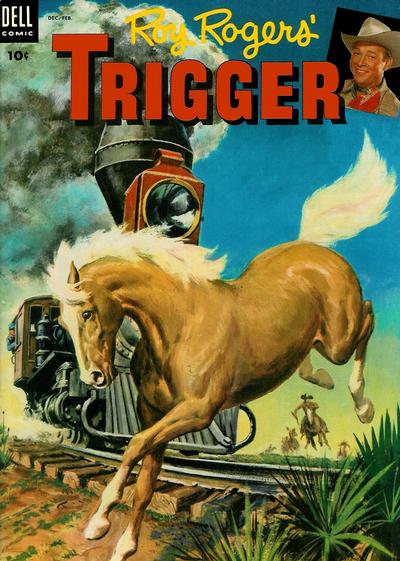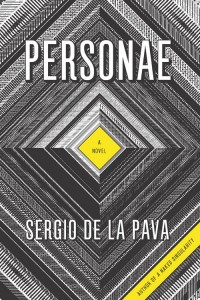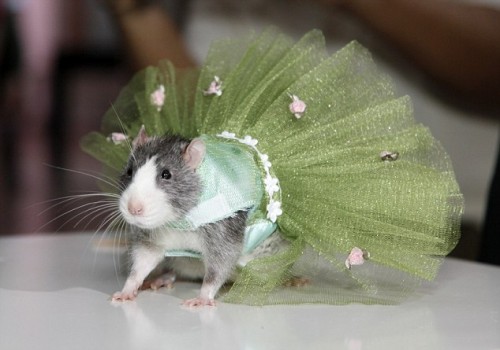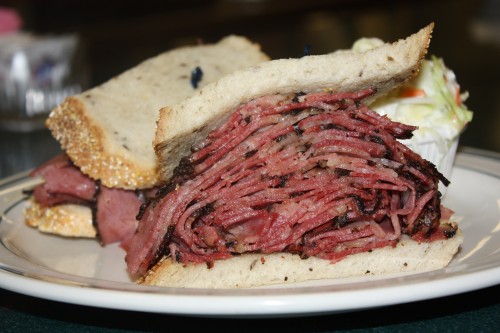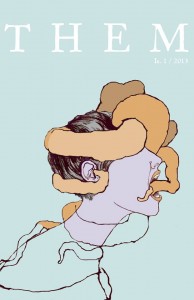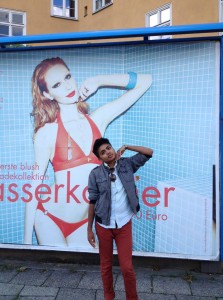TRIGGER WARNINGS & FORBIDDEN FRUIT / PEN / LITERARY STUFF IN LA
I haven’t read the New York Times in a while now. Not since the paywall went up. But yeah, I read that article the other day by Jennifer Medina about college students asking for “trigger warnings” on the books and movies they encounter in class. It’s good that I’m not a professor. I’d get in trouble somehow.
I know about the article because John Landis read it out loud at a PEN Center USA event last Sunday in LA. The event was Forbidden Fruit, PEN’s fundraiser where authors and actors read passages from some of the most banned books of all time. (Lolita, check.) Landis was the emcee. Panio Gianopolous, Maria Bello, Molly Ringwald, Jill Sobule, Frances Fisher, Hill Harper, and others read work from authors like Ken Kesey, Anais Nin, Orwell, Updike, Steinbeck, and Nabokov. All writers whose books might need a trigger warning, I guess.
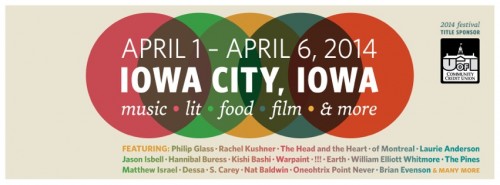
Mission Creek 2014 and all its Art, Film, Music and Lit is almost upon us with Phillip Glass, Rachel Kushner, The Head and the Heart, Warpaint, Brian Evenson, etc.
***
And this year HTMLGIANT will be part of the Litcrawl (Friday, April 4th) where Colin Winnette and Grant Maierhofer will read from their work featured on HTMLGIANT as part of an “Electronic Literature” event at The White Rabbit.
***
(The Iowa Review, Red Hen Press, Hobart, Spork, Black Ocean and others will also be a part of the Lit Crawl.)
***
Go here for full calendar
ALL THE TEXTS I’D SEND YOU IF YOU WANTED TO GO TO A SERGIO DE LA PAVA TALK WITH ME ON DEAD RUSSIANS
…but then got ran over by a bus and died. No im totally kidding! but you really did get the flu and couldn’t join me.
The talk was at Housing Works, and it included two other speakers: David Gordon and Michael Kunichika.Your expectations were unclear: talk about Russian writers who, though they left us long ago, remain potent presences for readers and writers today. From Dostoevsky and Tolstoy to Vasily Grossman and Sigizmund Krzhizhanovsky, we’ll learn about obsession, madness, realism, fables, and more, in an event with all the drama and pathos (well, at least some of the drama and pathos) of the great Russian novels themselves.
Here are all the texts I would have sent you, in chronological order and without clarifying who said what, because color-coordinating via SMS goes a step too far:
truth-seeking urgency intrinsic in russian lit
antithesis to beckett & writers who focused extensively on beauty of language
falling in love w/ english language, less plot driven urgency
dostoevsky similar to conrad in terms of truth-seeking urgency
multivocality of dostoevsky
there is no right, just different truths
dostoevsky threw the best literary parties (metaphorically speaking, as a creator)
proust s parties were too long, and maybe the guests were wearing better clothes
abstract psychological curiosity in motives, including abnormalities–>russian approach
going in depth for big questions, characters not being introverted
serialization of lengthy works, such as ‘war & peace,’ adds towards creating a broader debate. they become part of the broader debates occurring during their time
some compare the creation of microcosms of russian lit to ‘the wire’
comparing to british office, where they look at the camera at moments of despair but the viewer cannot do anything to help // to embarrasing dostoevsky characters
nabokov disliked dostoevsky for his “bad writing”
dostoevsky had a v diff approach to writing from nabokov: almost got executed literally, then was told he had another five years
that is also why dostoevsky did not pursue inanimate writing, unlike tolstoy (?)
nabokov didn t like music!
neither did dostoevsky !! (probably diff reasons)
saul bellow s ‘dean of december’–>similar urgency in truth-seeking (someone from the audience)
can reading a book be so vivid it appears like a different life?
if yes, it depends on willingness of writers to go to great lengths in creating characters who go too far, embarrass themselves/ are visceral
perhaps a key element that helps bring about the urgent truth-seeking: religion s role for the writers
religion, like their fiction, was trying to explain what goes on beyond the physical
nabokov s direct ancestor was dostoevsky s jailor. weird how he was not willing to cut him any slack, considering
dostoevsky was crowd-pleasing oriented bc he lived off writing
MONEY!!!
February 11th, 2014 / 5:20 pm
Short notice, but for those of you in Chicago, tomorrow night will see a plum event as the Danny’s Reading Series convenes, 7:30pm sharp at Danny’s in Bucktown (1951 W. Dickens, just off Damen). Reading will be Barry Schwabsky, Mark Yakitch, and the incomparable Virginia Konchan. As always, a DJ and dancing will follow.
Subscribe to Mathias Svalina’s Dream Delivery Service

For only $40
you can have
your dreams
delivered to you
every day in June,
via that brillig slithy tove
Mathias Svalina,
his vorpal sword in hand.
WHILE SUPPLIES LAST, YOU BETTER GET IT!!!
February 8th, 2014 / 12:02 am
……All Day I Will Fuck Poetry like Hiromi’s Tongue– Ito, Ito, Ito, Ito, Ito……
***
today is National Dress up Your Pet Day (ok, sure, come here, doggie)
today is also National Hot Pastrami Sandwich Day (yeah, I’m hungry. sure, why not)
and (sigh) today is National Poetry at Work Day (knife in stomach)
***
January 14th, 2014 / 5:45 pm
Brooklyn Poetry Summit Final Countdown
“As many of you have heard, we in Brooklyn (and its surroundings) are beginning to solidify the Brooklyn Poetry Summit, which will be taking place the weekend of April 18th of the coming year with more than 20 readers from all over the country with poetics both disparate and in close conversation with one another. We are hoping to be able to bring our readers into town without them incurring financial burden, and to help mitigate the financial stress that so often roadblocks meetings of this sort.
The summit’s goal is to provide a site for discourse, reading and listening whilst, of course, making similar provisions for partying with much vigor and refinement. As we are doing our best to stay away from any institutional support while still being able to bring all these poets to town without financial burden, we need support from everyone, especially to adjust for relative distances and financial concerns of our readers . So…donate, fast, furious, often, oftener…great “gifts,” even better future payoff…think of this as your retirement fund.
Summit Schedule (as of Jan. 6th, 2014)
Thursday, April 17:
BookThug Nation (Evening)
—erica kaufman
—Sherwin Bitsui
—Andrew Kenower
—Sara Wintz
Friday, April 18:
Unnameable Books (Evening)
—Sam Lohmann
—Sarah Dowling
—Nico Peck
—Tyrone Williams
Ugly Duckling Presse HQ (Night)
—Brandon Brown
—Roberto Harrison
—Anne Boyer
—James Yeary
—Tanya Olson
Saturday April 19:
Berl’s Poetry Shop (Evening)
—Chris Sylvester
—Holly Melgard
—Joey Yearous-Algozin
—Jordan Dunn
—Eddie Hopely
Location TBA (Night)
—David Abel
—Anna Vitale
—Dana Ward
—j/j Hastain
—Suzanne Stein
The Punk Singer @ PhilaMOCA
Super short notice, but if anyone in the Philly area is looking for something to do tonight, PhilaMOCA is screening The Punk Singer, the new doc about Kathleen Hanna:
8pm & 10pm, Eastern time
Get Ready for THEM: Stephen Michael McDowell Reports on Jos Charles’s New Magazine
When a new literary arts magazine comes along, it’s always a reason to celebrate. Jos Charles, Emerson Whitney, and Jamila Cornick have put together a critically ambivalent, aesthetically smart online magazine THEM (soon to be in print) that promotes the *trans values in us all, and it is awesome.
Stephen Michael McDowell, a writer loosely associated with the Alt Lit scene (as is Jos Charles), gives a 25-point report on Jos Charles’s new project THEM, Issue One, which was published online today (link provided below):
1. I have a very low tolerance for cold, and often cite any setting below 75 degrees Fahrenheit as potential “jacket weather”.
2. Despite widespread public knowledge of racially polar male and female authors and poets [something about me not being able to think of any openly queer or racially unspecific authors and poets, especially given] my experience.
3. Something about how modern dress does not preclude a person from being a person but can prevent a person from being informed of different genitals which can prevent a person being aware that different genitals exist.
4. Focusing on queer or trans* identity as a central theme in literature vs. focusing on economics as a central theme in literature vs. focusing on writing about writing as a central theme in literature vs. focusing on nothing in general as a central theme in literature.
5. In THEM Issue One the assigned gender of each contributor in this journal is shrouded in a way that, regardless of the piece’s overall focus, seems to render every character, voice, feeling, and basis for confusion “human” in a way that I like.
6. I developed pneumonia the week my junior high school P.E. class started practicing lacrosse. I was relieved I wouldn’t have to compete against people in lacrosse, but practiced at home in my bedroom because I liked the mechanics of the instruments that were used in the game. I felt profound disappointment when I got back two weeks later and they had moved on to volleyball.
7. In a climate where terms like “Experimental” and “Standard Procedure” seem wildly vague and frequently interchangeable it seems like enthusiasm and maybe “Recognizably Subversive” work are what readers’ readers are looking for to share with there friends. In this search, almost as if by accident, the still peripheral outpourings of the disenfranchised but not unfamiliar seem to easily go overlooked. I don’t know why this is, maybe something about quality, maybe something about affect and guilt, but this collection touches on a lot of subjects without intentionally straying from the easy-to-parse, which I think may give this publication a chance in the realm of alternative/internet literature at least.
8. I feel rigidly aware I’m writing in a mode I’m uncomfortable with because it seems like people are more receptive when I write this way.
9. This is a large collection (~100 pages of text). If I were approached and asked by a friend which pieces of this they should read, I would reluctantly point out one co-authored by a writer I’ve published, maybe three or four more besides, but the experience of reading this collection dans complètement left me on the brink of tears in a sort of dizzying empathy. So maybe just read all of it.
10.
““Trans*” is an umbrella term meant to include not just transgender identities, but any person who does not exclusively identify as the gender assigned at their birth. This often includes genderqueer, bigender, agender, genderfuck, and other gender-variant identities. Like with any umbrella term, the only way to know if “trans*” applies to someone is if they apply it to themselves.
THEM uses the word “trans*” in an attempt to make room in the old, reconcile, carve, and begin from where we can. That is to say “trans*” is not perfect and without limits; THEM adopts it as a strategy—contingently and consciously. If a more suitable term, less grounded in binarist western identity-politics emerges, THEM will be happy to abandon “trans*” and utilize another.
THEM is not the gender police. Authors and artists herein may not identify with “trans*” as a term, i.e. folks with cultural gender identities who reject its use. Likewise not all writing herein may be considered “trans* writing.” THEM is willingly confused by what does or doesn’t pass as trans* writing. THEM is critically ambivalent. THEM is happy to present conflicting manifestos.”
Seems sweet.
11. In my immediate family there is a constant struggle to reconcile racial and gender identity. One of my siblings has been in a long-term relationship with someone outside our family’s designated race and has seemed openly conscious of and tormented by this, despite the degree to which they seem compatible. Another sibling is in a “homosexual relationship” and hasn’t told our extended family, though they never attend family events without their partner. After nearly a decade of engaging exclusively in relationships with people of one racial designation, I recently started seeing people in other races and with non-conforming gender identities and have felt less confused by my impulses and more aware of what other people consider when looking for partners, and have felt the experience to be constantly epiphanic. Reading this journal has enhanced that feeling of epiphany for me, I feel.
12. Something I thought upon initially embarking on reading “THEM” was that the formatting and layout seemed lit-journal-typical in a way that made me uncomfortable. The discomfort, I realized, was grounded in my own tendency to try to design things contrary to how culturally normative magazines and journals have appeared in my experience. After thinking more about this, I realized the editors may have been trying to make the journal seem attractive to a wider audience than people who, in my mind, stereotypically fit into a “punk” aesthetic, due to that subculture appearing more welcoming to openly trans* people. I’m not sure what it is that I intuitively generalized but I don’t like it and think #10 renders it in a much higher resolution than my brain is willing to parse.
13. I’ve never had gay sex, whatever that means. Maybe I have. Whoa.
14. I didn’t know there was a trans flag. Now I do. http://castrobiscuit.com/wp-content/uploads/2012/10/trans-pride-flag.gif
15. Having a very difficult time coming up with 25 points. Earnestly considering flaking on all y’all tbqh.
16. Thought “LGTBQH” and kind of twisted my spine in an attempt to express a seemingly nondescript, possibly never before previously experienced emotion I could attempt to convey as “weakly entertained in a self-loathing humorous manner while very aware of growing feeling of hunger and mild pain in the testicles.”

Writer Reba Overkill does not live up to their name in THEM, Issue One, instead they straight up kill it.
17. I feel aversion, generally to political activism. To some degree, I embarked on a career in literature because novels and poems have the ability to transcend—or, more accurately, in my view, diverge from—approaching politically controversial topics and unite people. It seems sweet to me that there are authors and poets spending their time writing from politically aware standpoints, but with less an “agenda” than to express and explore, in a way that’s non-standard with regard to what, in my view, is typically viewed as “literature”
18. “Satyricon (or Satyrica) is a Latin work of fiction in a mixture of prose and poetry (prosimetrum). It is believed to have been written by Gaius Petronius, though the manuscript tradition identifies the author as a certain Titus Petronius. As with the Metamorphoses of Apuleius, classical scholars often describe it as a “Roman novel”, without necessarily implying continuity with the modern literary form.
“The surviving portions of the text detail the misadventures of the narrator, Encolpius, and his lover, a handsome sixteen-year-old boy named Giton. Throughout the novel, Encolpius has a hard time keeping his lover faithful to him as he is constantly being enticed away by others. Encolpius’s friend Ascyltus (who seems to have previously been in a relationship with Encolpius) is another major character.
“It is one of the two most extensive witnesses to the Roman novel, the only other being fully extant Metamorphoses of Apuleius, which is quite different in style and plot. Satyricon is also extremely important evidence for the reconstruction of what everyday life must have been like for the lower classes during the early Roman Empire.”
—Wikipedia
I found this article about three years ago when google searching “first novel”. [Something about it having been published in the first century A.D.] [Something about 2,000 years passing since its first publication] [Something about high-profile LGBTQ public figures gaining mainstream popularity on television and the internet]

Codi Suzanne Oliver, whose writing is also included in the first issue of THEM, is another reason why THEM’s editorial staff should include contributors’ phone numbers.
19. I have a friend who dated a trans woman and stayed friends with her after they broke up. My friend told me that her friend began a long-term relationship with a man and still hasn’t told him she was once designated a boy because it just never came up in conversation.
20. This couple: http://www.dailymail.co.uk/news/article-2374296/Transgender-teen-lovebirds-pose-swimsuit-shoot-having-gender-reassignment-surgery.html
21. Have, over the course of writing this, returned to the idea of “us vs. them” but haven’t yet come to any conclusions about it.
22. I’ve felt consistently averse to the idea of trying to “sell” this journal. I was asked to write this and am writing it because I was asked to and felt interested in writing something that would appear on HTMLGiant and would promote a more diverse range of potential for writing, in general.
23. I feel shitty for making this “meta” instead of feeling as though I was capable of coherently summarizing my thoughts, strictly, on the journal itself.
24. I think viewing this collection not as “queer/trans* literature” but as “literature” will be the most beneficial way of perceiving it, if the reader is capable of dissociating from the intention of the publication.
25. Thank you for reading this.
You may read THEM, Issue One, free and online here: http://issuu.com/themlit/docs/them_draft_1.docx
December 13th, 2013 / 8:00 pm

